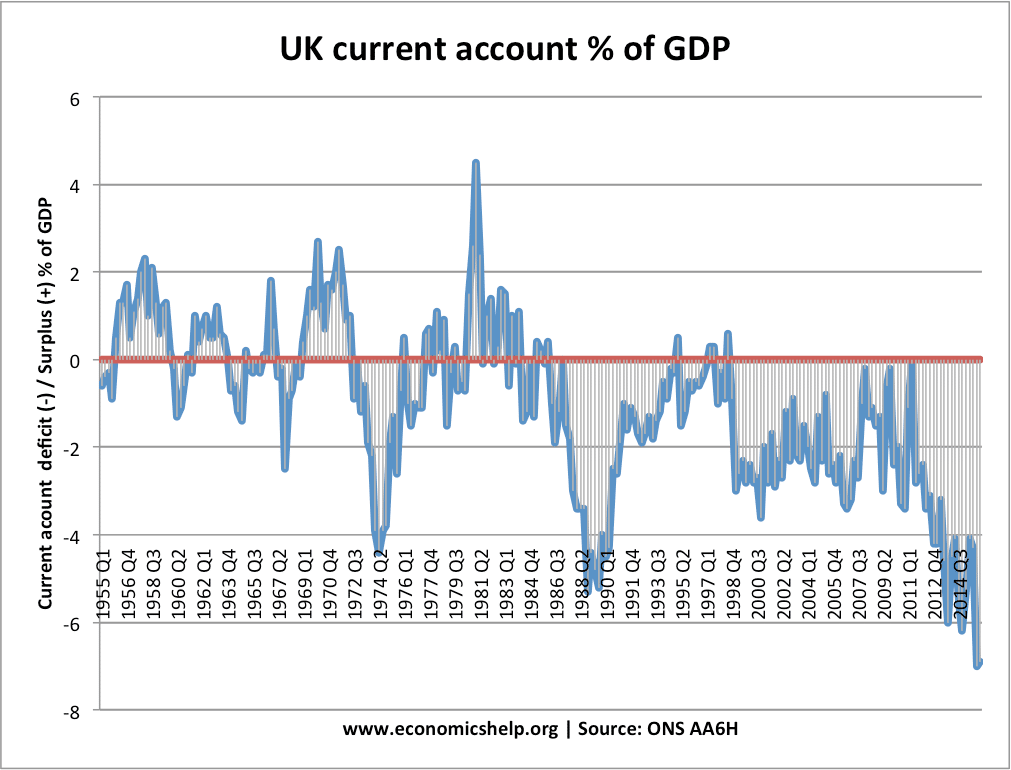Readers Question: Assess the view that supply-side reforms have enabled the UK economy to be ‘more successful in maintaining growth, despite an appreciation in the value of its currency’ (Extract 1, lines 5-6}. (From Edexcel unit 3)
An appreciation in the exchange rate would tend to reduce aggregate demand and lead to lower economic growth. An appreciation makes exports less competitive, decreasing quantity of exports. An appreciation also makes imports cheaper, increasing quantity of imports (and hence money leaving the economy). Therefore, the (X-M) component of AD will be lower. This will reduce Economic growth.

